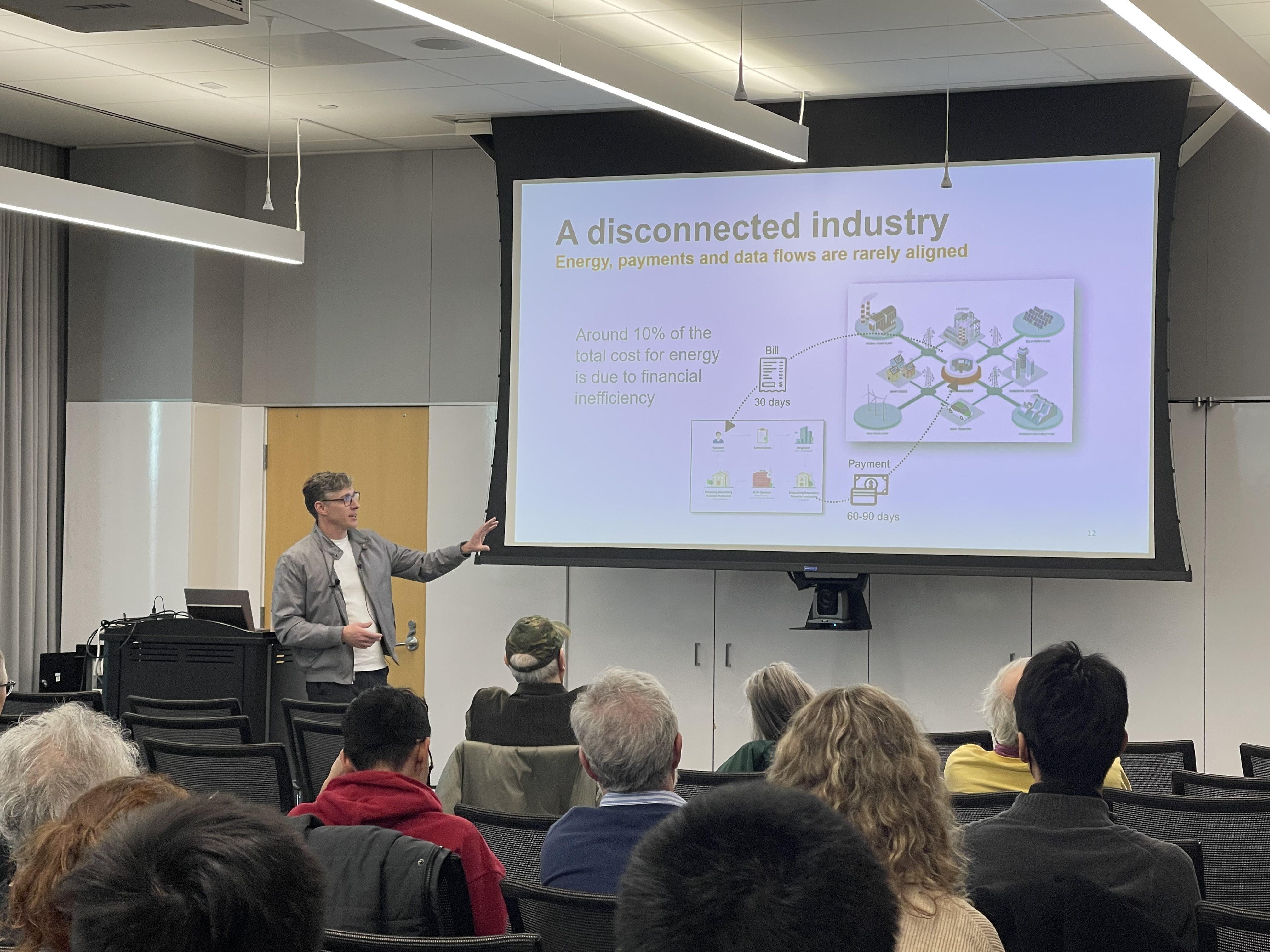
Towards a Future of Energy Abundance: EPP Alum Austin Mitchell Discusses New Startup Intersection of Energy and Bitcoin
By Sera Passerini
At the end of January, the Scott Institute welcomed CMU alum Austin Mitchell, co-founder and CEO of Synota for a Distinguished Lecture. Since receiving his PhD from the Department of Engineering and Public Policy in 2013, Austin’s career has been focused on the energy industry. His academic research informed energy and environmental policy at state and federal levels. His expertise includes markets, utilities and regulation, business strategy and risk management. Austin’s current work is to solve global problems of energy equity and access with Synota. Synota is pioneering the intersection of energy and cryptocurrency, with a pay-as-you-go service for energy transactions.
Mitchell shared his journey to entrepreneurship from his time as a student at CMU and in the energy industry. His academic focuses included a vast range from economics to health effects of emissions. After completing his PhD, Mitchell decided to go into the industry, gaining an understanding of the complexities of the field and the systems used.
Mitchell explained the foundation of blockchain technology and how it can intersect with energy. He explained that the various parts of energy delivery are disconnected and about 10% of the total cost for energy accounts for financial inefficiency. This is where cryptocurrency comes in. Using blockchain, the energy industry can better organize and synchronize information between the various parties involved in energy distribution.
The Bitcoin protocol that Synota uses is different from other cryptocurrency protocols such as Ethereum. While Bitcoin can only process seven transactions per second (compared to thousands per second), it “really shines in security and decentralization,” Mitchell said. Bitcoin’s decentralized structure and reliability for consumers makes it viable for pay-as-you-go transactions for energy.
Finally, Mitchell presented on energy solutions built on Bitcoin protocol that will contribute to energy equity. Although Bitcoin can have a high energy cost, there is also the potential for accelerating access to electricity in underserved areas. Bitcoin miners are being used in these areas to be a buyer of last resort or an anchor tenant on the system, taking as much energy as is available. Emerging markets are now easier to serve, incentivizing new grids in remote areas. The incentive for Bitcoin miners is that as a last resort buyer, the cost for electricity will be cheaper, but still give the utility companies a benefit as well.
Mitchell’s experience and insight on the world of cryptocurrency and energy provides a great example of energy innovation, having created a niche that poses the opportunity to improve and expand energy accessibility and minimize waste.